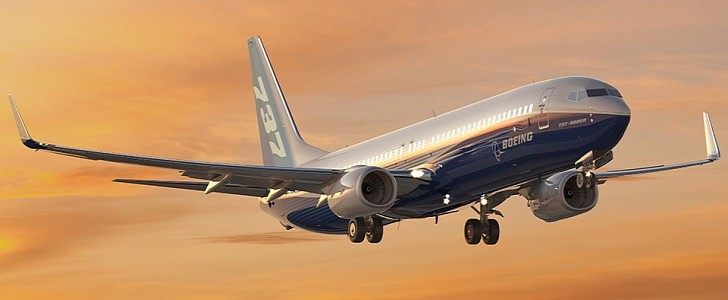Aviation giants Boeing and Airbus had cut the supply of spare parts and technical support to Russian airlines quickly after the conflict in Ukraine broke out. Now, Boeing has taken a step further, announcing that it will stop getting its titanium, an essential resource for aircraft manufacturing, from the Russian company VSMPO-Avisma, its traditional supplier.
The international sanctions on Russian aircraft and ships have also raised questions regarding the supply of certain essential commodities to European countries and the U.S, some worrying that a dependency on Russian resources, in some cases, might cause serious issues. But apparently, that’s not the case for Boeing, which announced that its contract with titanium producer VSMPO-Avisma will be suspended.
Titanium is considered a critical component in aviation, used for various airplane parts, from engines to the landing gear. It’s an essential material for the manufacturing of commercial aircraft, such as the Boeing 737 and Boeing 787. According to Boeing, titanium’s strength-to-weight ratio is what makes it so valuable but also costly. The Russian company is considered the largest titanium supplier in the world, and it has been collaborating with the American giant for decades.
Back in 2000, the two have established the Boeing–VSMPO Innovation Center. Even more importantly, Simple Flying reports that the two had renewed their contract just months prior to the war in Ukraine at the Dubai Air Show. Boeing had big plans for the future of this partnership, including significant investments for the development of new titanium alloys.
But all of that came to a halt as the current situation led to increased sanctions for Russia. Boeing claims that it can rely “on a diversity of titanium sources” and started to diversify its supplier range years ago. Basically, the message is that aircraft production won’t be affected. On the other hand, the Russian media sent a similar message about VSMPO-Avisma, claiming that it will look to other markets and that titanium’s versatility makes it a desirable resource in many industries other than aviation.
However, while the American aircraft manufacturer is confident about its alternative titanium supplies, that’s not the case for all companies in the industry. For example, Airbus might not be able to take the same bold step. One thing’s for sure – the current situation is leading to substantial reconfigurations of essential supply chains across multiple industries.
Titanium is considered a critical component in aviation, used for various airplane parts, from engines to the landing gear. It’s an essential material for the manufacturing of commercial aircraft, such as the Boeing 737 and Boeing 787. According to Boeing, titanium’s strength-to-weight ratio is what makes it so valuable but also costly. The Russian company is considered the largest titanium supplier in the world, and it has been collaborating with the American giant for decades.
Back in 2000, the two have established the Boeing–VSMPO Innovation Center. Even more importantly, Simple Flying reports that the two had renewed their contract just months prior to the war in Ukraine at the Dubai Air Show. Boeing had big plans for the future of this partnership, including significant investments for the development of new titanium alloys.
But all of that came to a halt as the current situation led to increased sanctions for Russia. Boeing claims that it can rely “on a diversity of titanium sources” and started to diversify its supplier range years ago. Basically, the message is that aircraft production won’t be affected. On the other hand, the Russian media sent a similar message about VSMPO-Avisma, claiming that it will look to other markets and that titanium’s versatility makes it a desirable resource in many industries other than aviation.
However, while the American aircraft manufacturer is confident about its alternative titanium supplies, that’s not the case for all companies in the industry. For example, Airbus might not be able to take the same bold step. One thing’s for sure – the current situation is leading to substantial reconfigurations of essential supply chains across multiple industries.








